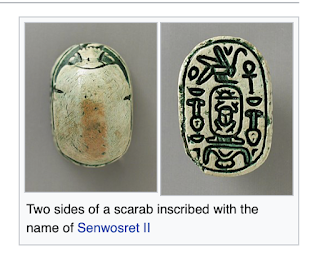Dal yaprak saklamış seni
Akkadian Sumerian Etruscan Turukku ProtoTurkic Proto Turkic Scythian Sarmatian Thracian PreGreek Pre-Greek Carian Sidetic Luwian Lycian Lydian Asianic Kurmali Karoshthi Indus Script Paulys RE Indo European IndoEuropean IndoGerman Etymology Kelime Köken Kelimeköken Turkish Türk Proto Altaic Uralic No Main Stream Ideas No MainsStream Something New No Racism Against EuroCentrism No Euro Centrism! I'm looking at the things through the Turkic window! * Türkic names in Pliny Strabon Homer Pauly RE
Sunday, November 29, 2020
Poems-Quotes-of-mine-2020
Cypro-Minoan-Syllabary-VERSUS-Turkish-Runes
I have compared
today two alphabets that have normally not relation to each other!
1st one is the Cypro-Minoan Syllabary with signs that are ca. 3000 years old
2nd one is the Turkish Alphabet with Runes from Central Asia that we found on Orhun Stones (1300 years old).
*
Look at the pic!
=>
The Turkish Runes with a yellow mark are the ones having the same sound value and similar to CyproMinoan signs.
The Turkish Runes on the right side of the boxes are the ones that could be similar (with imagination)
The Turkish Runes on the left side of the boxes are the similar ones having an other sound value!
Compare yourself!
Uzunbacak Adem
wiki source:
https://en.wikipedia.org/wiki/Cypro-Minoan_syllabary
Saturday, November 28, 2020
scarab-sacarabeo-kam-shaman-drum-similarity
Hello,
I think I can compare them!
Look at these:
Scarabs from Ancient Egypt
AND
Shaman Drums from Middle Asia/Eurasia/Finnish-Sami drums
Both sides are similar to each other!
Chaotic pics but you can see the similarity maybe better!
Last word: we don't know why the scarabs are divine. Nobody knows it.
Maybe my blog is the answer.
Uzunbacak Adem
pics: wiki
Eris-TheUglyWoman-Discordia
Eris-Greek goddess of strife and discord
Hello,
here is Eris.
Eris is a limping, ugly and a small woman!
I have a proposal for the etymology: Erez is a Turkish word containing er (the man) and erez/eres could mean a woman who behaves like a man. There are other Turkish words like erselik/erselek: hermaphrodite, maybe a nympho, ersek: a man-woman (boyish, German burschikos), ersinmek: showing himself/herself like a brave man...all with the Turkish root er: man.
ersek with the meaning nympho could be the key to our explanation. A nympho could be an ugly woman who has no big chances by the men.That is why she is frustrated and hates the beautiful and the men/mankind.
Maybe!
Uzunbacak Adem
pic: wikipedia.de
Sunday, November 22, 2020
ArabicTerk-LatinTergum-TurkishTerki
Arabic Tark ترك
Latin Targum/Tergus/Tergo
Turkish Terki/Terke
Arabic, Latin and Turkish belong to 3 different language families.
But there many nice and startling similarities.
Look at these below:
Arabic tark means to leave, to depart. Modern Turkish word terk etmek is a direct borrowing from Arabic, meaning to leave, to leave behind, to go away
Latin Tergum/Tergus/Tergo meaning very similar. rear, to flee, to run away, the rear part of the body, in the rear
Modern Turkish Terke/Terki meaning the rear, the rear part of the horse derived from the Old Turkish verb der-/ter- meaning to get together, make something to go or make something to leave, (bereit machen)
*
A nice coincidence anyway!
Uzunbacak Adem
Friday, November 20, 2020
Caratacus-son-of-Cunobelinus-son-of-Tasciovanus
According to Wikipedia:
Caratacus (Brythonic *Caratācos, Middle Welsh Caratawc; Welsh Caradog; Breton Karadeg; Greek Καράτακος; variants Latin Caractacus, Greek Καρτάκης) was a 1st-century AD British chieftain of the Catuvellauni tribe, who resisted the Roman conquest of Britain.
A war lord who resisted the Roman Army, not without success. He belongs to the "Catuvellaunian" Tribe.
*
But who was he?
His Father?
His Grandfather?
*
As I saw the names of these men, I thought of the Turkish Names (I ignore Roman/Greek -S or -US or -OS):
Caratacus: Karataku=> Black Bird / Black Chicken
Cunobelinus: Günbelen/Günebelen=> Bright Mountain or Bright Ford (Belen , Turkish word for a place where you can pass a mountain)
Tasciovanus: Taşkovan => He who carves Stones
*
As we see above we can explain these names with Turkish words.
*
Source and Pics: Wikipedia
Uzunbacak Adem
Pre-Greek-Bolinthos-versus-Tuerkic-Bulan
Reconstruction based on a bull skeleton from Lund and a cow skeleton from Cambridge, pic: wiki * Robert Beekes wrote in his work "Pre...

-
* Here below some Scythian and Thracian toponyms and andronyms that could have a Türkic etymologies: * Name Who/What Old Türkish equivalen...
-
Pic: wikipedia * There are many Argos in Greek mythology. The two most important ones for our topic are the dog Argos and toponym Argos. L...
-
Payava tomb front inscription by wikipedia * Lycian people, the allies of the Troyan against Achaeans. We don't know much about them. ...
































